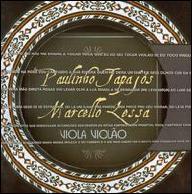In 1969, he won both the national and international stages of the IV Festival Internacional da Canção (FIC) with Cantiga por Luciana (with Souto), by Evinha (for which he won the Galo de Ouro award); in the same festival, he won fifth place on the national stage with Minha Marisa (with Falcão) by the Golden Boys, and seventh place of the same stage with A Velha Porta (with Souto/Carvalho), interpreted by Carvalho and As Gatas (who were awarded as Best Interpreters). Also in 1969, he won sixth place at the II Song Olympiad of Athens, Greece, with Rumo Sul (with Souto) by Carvalho and, at the II Festival Universitário da Música Brasileira of TV Tupi, he was a finalist with Em Qual Estrada (with Fred Falcão) interpreted by Maysa, O Cosmonauta Que Virou Luar (with Souto) by the Golden Boys and the Youngsters, and A Menina e a Fonte (with Verocai/Arnoldo Medeiros) by the Golden Boys.
In 1970, at the International Festival of Viña del Mar (Chile), he won fourth place with Avenida Atlântica (with Falcão) by the Golden Boys; at the V Festival Internacional da Canção (FIC), he was a finalist on the São Paulo stage with Vivências (with Chico Lessa/Souto) by O Terço, a finalist on the national stage with Minha História (with Ivan Lins/Verocai) interpreted by Fototi, and Tema do Caminhante (with Renato Corrêa) by Trio Esperança. Also in 1970, he was a finalist in the International Song Festival of Caracas (Venezuela) with A Menina e a Fonte (with Verocai/Arnoldo Medeiros) interpreted by Eliana Pittman (who was awarded as the Best Interpreter). Son of composer Paulo Tapajós and brother of composer Maurício Tapajós and singer Dorinha Tapajós, Paulinho Tapajós started in music in his childhood at the hands of his father, frequenting the Rádio Nacional, the leading radio station for which his father was the A&R director. Early on, he became familiar with great artists such as Marlene, Emilinha Borba, and Radamés Gnattali and later, he took classical guitar lessons with Léo Soares and Verocai, his first partner. His professional debut was at the Música Nossa project at the Santa Rosa theater (Rio) in the late '60s. In 1968, he had a song of his, Madrugada (with Verocai) recorded for the first time by Magda for the LP Música Nossa. In 1969 and 1970, he was in A&R and the producer of the label Forma (Philips), from Polygram, launching artists like Ivan Lins, O Terço, Luchinha Lins, Gonzaguinha, and Fagner, among others. In the 1970s, Tapajós participated in the soundtracks of several soap operas, such as #Irmãos Coragem (Irmãos Coragem), #A Próxima Atração (Tema de Regina with Souto) and Quem Vem de Lá (with Verocai), #Assim na Terra como no Céu (Assim na Terra como no Céu (with Nonato Buzar/Roberto Menescal), Mon Ami (Fatos e Fotos) (with José Roberto Bertrami), Tema de Suzy (with Roberto Menescal), and Amiga (with Menescal)), among several others. As a producer, he was responsible for albums by Gonzaguinha, Fagner(Manera Fru Fru Manera), O Terço (O Terço), Ivan Lins (Agora and Deixa o Trem Seguir), Antônio Adolfo (Antônio Adolfo), Trio Mocotó (Muita Zorra), Toquinho Vinicius (Vinicius e Toquinho, Toquinho e Vinicius), Nara Leão (Meu Primeiro Amor), Carlos Lyra (Eu e Elas), Jorge Ben Jor (Negro é Lindo, Ben, A Tábua de Esmeraldas, 10 Anos Depois, and Solta o Pavão), Gilberto Gil/Jorge Ben Jor (Gil Jorge), Altamiro Carrilho (Antologia do Chorinho), Quinteto Violado (Antologia do Baião, Folguedo), Quarteto em Cy (Antologia do Samba-Canção Vols. 1 and 2, Quatro Sucessos em Cy), and MPB-4 (Sucessos Vol. 4, 10 Anos Depois, and Palhaços e Reis). In 1972, he started his career as an interpreter, recording with Dorinha Tapajós the double single Paulinho e Dorinha and two years later, his first individual LP, Paulinho Tapajós. As a freelance producer, he was responsible for records by Sivuca (Vou Vida Afora and Cabelo de Milho), Os Carioquinhas (Os Carioquinhas no Choro), Nelson Gonçalves (Cante Comigo), Alcione (Tempo de Guarnicê), and Jorge Ben Jor (A Banda do Zé Pretinho). In 1984, the samba school Unidos do Cabuçu won the annual Carnaval contest with his samba-enredo Beth Carvalho, a Enamorada do Samba (with Souto/Iba Nunes/Luís Carlos da Vila). In 1984, Tapajós wrote the soundtrack for the children's musical +Astrofolias (with Antônio Adolfo/Xico Chaves). He also had several songs included on the soundtracks of the films #André, a Cara e a Coragem, #Se Segura, Malandro, #Os Vagabundos Trapalhões, and several others. ~ Alvaro Neder, Rovi














